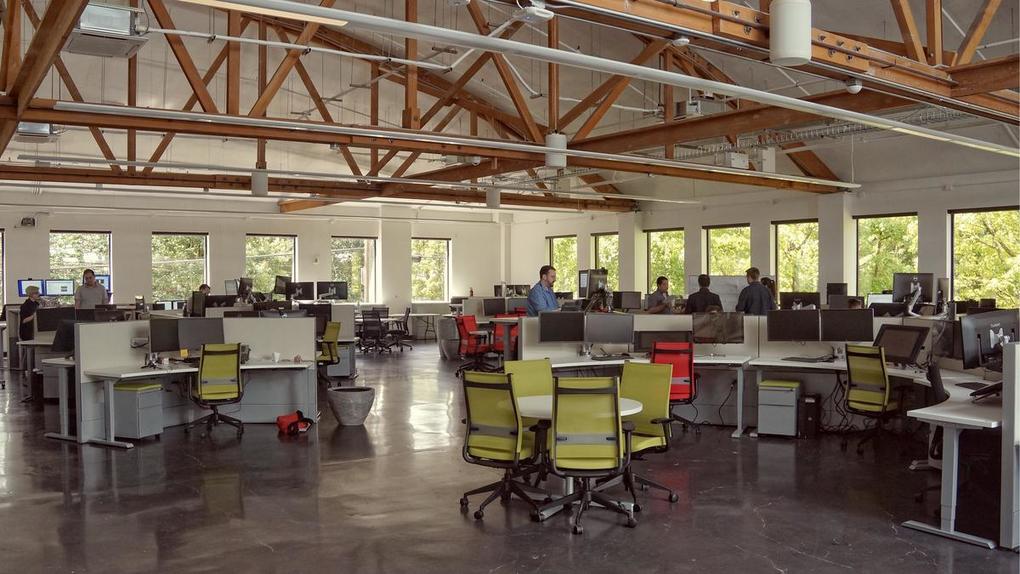
OEN Member NewsJaguar Land Rover revamps Portland incubator (Portland Business Journal)
Two years since launching its own startup incubator in Portland, British automaker Jaguar Land Rover is making significant changes to the program’s structure.
Gone is the six-month limit to a startup’s participation in the incubator. It’s also no longer requiring participants to take investment capital in exchange for an equity stake in their startup. It’s also expanding the range of startups it works with — adding growth-stage companies in addition to early stage startups — and will change its name to Jaguar Land Rover Innovation Labs.
The shift isn’t sudden. It’s part of its planned evolution of the program, said Danielle Alexander, general manager for Jaguar Land Rover Innovation Labs, which operates from offices in Northwest Portland.
“We’ve consistently made it a point to evaluate and iterate on the program at the end of each cohort,” Alexander said via email. “Through this process we noticed the projects we were having the most traction with were those that we could get into production faster.”
As a result, the group is focusing its work on companies with technology that can be integrated into vehicles. It will continue to work with early stage companies but is adding growth stage companies that want connections and resources from JLR.
JLR first announced its plans to launch the Portland startup incubator in 2015, then hosted its first cohort of companies in January 2016. The incubator was initially designed for all types of startups, which would be part of six-month cohorts. To participate, startups would give JLR an equity stake in exchange for a $250,000 investment.
Now, though, JLR will no longer limit a company’s participation to six months. Instead, a startup can continue to work with the JLR Labs team for however long is necessary. The goal is that, by the end of the program, participants should have a functional proof-of-concept or a product that can be integrated into JLR vehicles.
Some companies that come through the Innovation Labs will need more shaping, some will go into production faster,” Alexander said.
It will also no longer require participants to take investment in exchange for equity. Alexander noted that some of the more established startups that came through the program were already well-funded with customer revenue. So, depending on a company’s needs, it could either receive investment or not under the new framework.
Participants will still have access to the 15 people employed by JLR Labs, as well as the 84 engineers and designers employed by JLR in Portland as part of the Open Source Technology Center.
So far, 19 companies have cycled through the program, including Workfrom, a site that reviews remote working locations; Nouvola, developer of a software performance testing platform; and Validated, a parking validation app. Last year, Tyfone Inc., a long-established Portland identity management and security company, participated in the program to help expand beyond its traditional financial services market into automotive.
The changes at the JLR program comes as other Portland incubators evolve their models.
The Portland Incubator Experiment has a new home in the Central Eastside Industrial District and plans to experiment with a new model of accelerator. PIE General Manager Rick Turoczy hasn’t disclosed his plans yet, though he hinted at some of the changes, like trying a nonprofit model, in a blog post earlier this year.
PIE has also launched a partnership called PIE Shop with digital agency Uncorked Studios and software maker Autodesk, which recently moved into Portland. PIE Shop will focus on supporting startups making physical products.
In March, digital agency R/GA announced an accelerator focusing on technology built for pet owners and pet care. The first cohort of the accelerator is slated for this summer and it will be housed in R/GA’s office in the Pearl District.
These aren’t the first tweaks JLR has made to its program. Last year, for example, JLR refined its focus to startups in five areas: autonomous vehicles, connectivity, computing, smart interfaces and services.
But the more it’s learned, the more it felt additional changes were necessary.
“With hundreds of accelerators and incubators around the world excelling at what they do, we weren’t going to let anyone down by making a shift in our program. So, we set about doing just that,” according to a blog post announcing the changes.
Source: www.bizjournals.com

